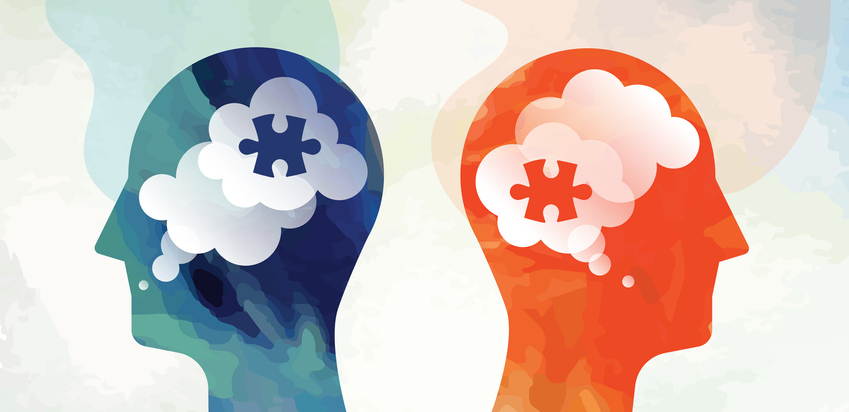“But rather than relying on a thin, idealized hope that we will all one day just get along, we can approach conflict resolution as an art form that we are privileged to develop and hone.” ― Diane Musho Hamilton
The Challenge of Conflict and the Unconscious
The experience of conflict is natural and intrinsic to human life. Yet many of us are afraid of it, and we run away. We feign all the tools at our disposal to avoid direct conflict. It is understandable. It is uncomfortable. We must put ourselves out there with our vulnerability, needs and wants.
All our childhood coping mechanisms are triggered. For some, conflict activates childhood trauma and experiences too painful to integrate into consciousness. The nervous system is activated in the fight or flight safety mechanism built into the reptilian brain. Our system is flooded with adrenaline or cortisol. We feel stressed, threatened, or attacked. In moments of conflict, we are separated from the object of attachment, whether a partner, lover, family member, friend, analyst or colleague.
Conflict Calls for Truth
However, the conflict never goes away, even if we try to will it so. The relationship work demands to be done with friends, lovers, family, and even analysts. “It is one of our evolutionary assignments,” according to Diane Musho Hamilton in her book, Everything is Workable. Befriending conflict in relationships, is how we retrieve parts of ourselves that we have marginalized or exiled. Embracing and finding ways to engage in conflict is necessary if we are committed to a journey of self-discovery and of becoming conscious.
When we have a conflict with those around us, we are given an opportunity to bring into awareness hidden aspects of ourselves. We get to practice transforming conflict into patience, compassion, mutual understanding, and creativity. We get to experience grace during moments of revelation. When we use these conflict opportunities, we contribute to the collective compassion and consciousness of learning how to live peacefully with each other. Current world events reveal this is one of the greatest challenges of the global human community, and each of our individual efforts makes a difference in our collective evolution.
Diane Musho Hamilton also writes that “conflict calls for TRUTH.” In the Buddhist tradition, acceptance of what is is the Truth is not what we want it to be or what we wish it to be. The Truth reveals what is. We depend on it as a source of strength and clarity and as a basis for integrity.
The Need for Difficult Conversations
Sometimes in our lives, we need to have a difficult conversation. It could be with a co-worker who has behaved inappropriately. Or with someone we care about who has a substance abuse problem or needs care to deal with a mental health issue.
How we handle these conversations and reflect on our communication style can help us navigate these landmine-filled experiences.
Personally, what I have learned is to take a couple of breaths and not react because what is really damaging is the toxic emotions and dysfunctional behaviour that can sometimes hijack a frank neutral conversation.
Our steps in this difficult journey to meet our needs must come from recognition. We must know what is at play in these kinds of conversations. Emotional conflict, disagreement, tangled beliefs, and emotions are demanding circumstances requiring mental effort.
Three Things to Remember
There are three things I would like to offer that I hope will help.
First, we don’t see things as they are; we see them as we are. Personal experiences, culture, religious beliefs, and family history inform our assumptions and how we view the world. There is a big difference between what happened and our interpretation of what happened, then the stories we tell ourselves. These interpretations then influence our behaviour. Many times, these assumptions are running in the background out of our awareness.
The second is to see conflict as an opportunity. We can shift our perspective to see that conflicts or the need for these conversations may possess an elegant intelligence that expresses truths we may not want to see clearly. When a conflict erupts in our lives, it has the potential to invigorate us, disrupt our habitual patterns, and compel us to learn something new. Conflicts interrupt life as usual, and we are catapulted into the unknown, into a space of open possibility
Finally, is to reflect on the kind of language that we speak. Non-violent communication is a way of speaking that helps us to transform old patterns of defensiveness and aggressiveness into compassion and empathy. Ask yourself, “Do you speak Jackal or Giraffe?” Speaking Jackal is full of “you” statements, accusations, blaming and making the other person wrong. Using this language will usually get a negative and defensive response because the other person will feel judged. Speaking Giraffe is a language that is centred on “I.” A good “I” statement takes responsibility for one’s feelings and experiences. You can focus on the behaviour and not the person. Saying to someone “I think,” “I need,” ” I want,” or “I would like” is more likely to result in a positive outcome.
Christina Becker
September 2022
Have you found value here? Have you been inspired or moved? Please consider sharing the post on your social media networks by using the buttons below.
I love to hear your comments and ideas. Use the comments below or send me an email.
Is this your first time here? Does your soul need feeding? Are you looking for a Jungian based inspirational reflection to help with life's challenges. The Jungian Path Newsletter is a monthly reflection on the theme of the new moon. Join the list today.

